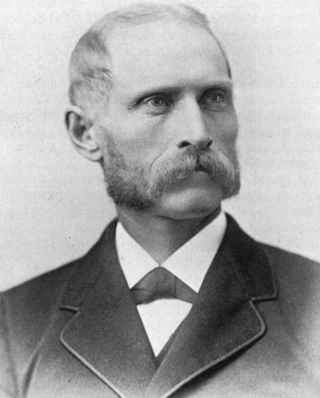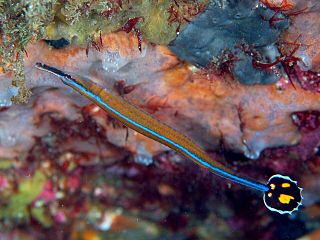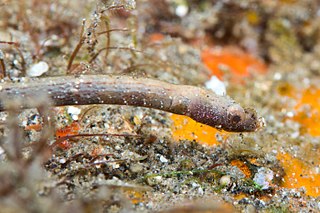Related Research Articles

James Leonard Brierley Smith was a South African ichthyologist, organic chemist, and university professor. He was the first to identify a taxidermied fish as a coelacanth, at the time thought to be long extinct.

Samuel Walton Garman, or "Garmann" as he sometimes styled himself, was an American naturalist and zoologist. He became noted as an ichthyologist and herpetologist.

Johann Jakob Heckel was an Austrian taxidermist, zoologist, and ichthyologist from Mannheim in the Electoral Palatinate. He worked at the Royal natural history cabinet in Vienna which later became the Austrian Museum of Natural History.
Shigeho Tanaka was a Japanese ichthyologist and professor of zoology at the Imperial University of Tokyo. He published numerous works on fishes and sharks and co-authored a book on Japanese fish with famous American scientist David Starr Jordan.

Barbodes dunckeri, the bigspot barb or clown barb, is a species of cyprinid fish endemic to the Malay Peninsula where it inhabits clear streams and acidic swamps. This species can also be found in the aquarium trade. It was described by Ernst Ahl in 1929, but was first recognized as a distinct species by Georg Duncker in 1905.
The longsnout pipefish is a pipefish of the family Syngnathidae. It has only been recorded from midwater and bottom trawls at depths of 37–212 metres (121–696 ft). The habitat and biology of this species are almost unknown but juveniles have been recorded in the stomachs of blue penguins and Snares penguins.
Gilbert Percy Whitley was a British-born Australian ichthyologist and malacologist who was Curator of Fishes at the Australian Museum in Sydney for about 40 years. He was born at Swaythling, Southampton, England, and was educated at King Edward VI School, Southampton and the Royal Naval College, Osborne.
George Sprague Myers was an American ichthyologist who spent most of his career at Stanford University. He served as the editor of Stanford Ichthyological Bulletin as well as president of the American Society of Ichthyologists and Herpetologists. Myers was also head of the Division of Fishes at the United States National Museum, and held a position as an ichthyologist for the United States Fish and Wildlife Service. He was also an advisor in fisheries and ichthyology to the Brazilian Government.

Doryrhamphus and Dunckerocampus, popularly known as flagtail pipefish, are two genera of fishes in the family Syngnathidae. They are found in warm, relatively shallow waters of the Indo-Pacific, with a single species, D. paulus, in the eastern Pacific. Most of these pipefishes are very colourful, and are fairly popular in the marine aquarium hobby despite requiring special care and not being recommended for beginners.
Phallostethus dunckeri is a species of fish in the family Phallostethidae. It is endemic to Malaysia.
Duncker's pipehorse, also known as the nose-ridge pipefish, red-and-gold pipehorse, red-hair pipefish or spiny sea dragon, is a species of fish in the family Syngnathidae. It is endemic to eastern Australia and Lord Howe Island. It is a pelagic species which is found in the waters of the continental shelf and the continental slope. Fishermen within its range report that it is caught where there are hard substrates such as hard sand, shale, sandstone or gravel and they are often caught alongside gorgonians, black corals, algae or sponges. It is an ovoviviparous species in which the male bears the fertilised eggs in a brood pouch located under his tail. It is a carnivorous species which feeds on small planktonic crustacean.
Maurice Kottelat is a Swiss ichthyologist specializing in Eurasian freshwater fishes.
John Roxborough Norman was an English ichthyologist.

Syngnathus temminckii is the most common pipefish in southern African estuaries, ranging from Walvis Bay (Namibia) to the Tugela River on the east coast of South Africa.
Gerald Robert "Gerry" Allen is an American-born Australian ichthyologist. His career began in 1963, when he spent a semester at the University of Hawaii, where he also received a PhD in marine zoology in 1971. In 1972, Allen wrote his doctoral thesis on the systematics and biology of the anemone fish.

Petre Mihai Bănărescu was a Romanian ichthyologist. Bănărescu was a member of the Romanian Academy.

Halicampus dunckeri or also commonly known as the Duncker's pipefish or ridgenose pipefish is a species of fish in the family Syngnathidae.
Canna Maria Louise Popta was a Dutch biologist.
Earl Stannard Herald was an American zoologist, ichthyologist and television presenter. He was born in Phoenix, Arizona, and got his Ph.D. in 1943. In 1948, he became the director of the Steinhart Aquarium in San Francisco, California, and from 1952 to 1966, he presented the popular science television programme Science in Action. Throughout his life, he studied a variety of aquatic organisms, especially pipefishes, and described many new taxa. He died in Cabo San Lucas, Baja California, in a scuba diving accident.
Marie-Louise Bauchot is a French ichthyologist and assistant manager of the National Museum of Natural History, France.
References
- 1 2 Duncker, (Paul) Georg (Egmont) Nationaal Herbarium Nederland
- ↑ "Statement based on translated text from an equivalent article at the German Wikipedia".
- ↑ Trigonostigma heteromorpha FishBase
- ↑ Solegnathus dunckeri Whitley, 1927 GBIF.org
- ↑ The ETYFish Project Archived 2015-07-21 at the Wayback Machine Order CYPRINIFORMES: Family CYPRINIDAE
- ↑ Full text of "Proceedings of the California Academy of Sciences"
- ↑ Christopher Scharpf & Kenneth J. Lazara (22 September 2018). "Order SYNGNATHIFORMES: Families AULOSTOMIDAE, CENTRISCIDAE, FISTULARIIDAE, SOLENOSTOMIDAE and SYNGNATHIDAE". The ETYFish Project Fish Name Etymology Database. Christopher Scharpf and Kenneth J. Lazara. Retrieved 29 January 2023.
- ↑ Biodiversity Library Book titles